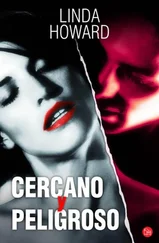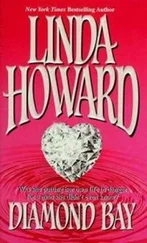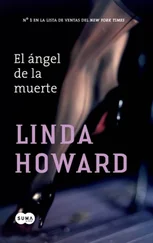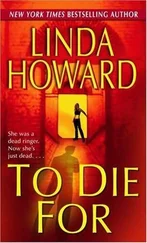Dr. Vincenzo Giordano tapped politely on the frame of the open door, then stepped inside. Rodrigo glanced at him; the man looked haggard, his usually neat salt-and-pepper curls disordered, as if he’d been pulling at them. The good doctor had been his father’s friend since boyhood, and he’d wept unashamedly when Salvatore had died not two hours ago.
“Why isn’t she dead, too?” Rodrigo asked, indicating the woman on the bed.
Vincenzo took Denise’s pulse, and listened to her heart. “She might still die,” he said, rubbing a hand over his weary face. “Her heartbeat is too fast, too weak. But perhaps she didn’t ingest as much of the poison as your father did.”
“Do you still think it’s mushrooms?”
“I said it looked like mushroom poisoning—for the most part. But there are differences. The speed with which it acted, for one thing. Salvatore was a big, robust man; he wasn’t feeling ill when he returned home last night at almost one o’clock. He died just six hours later. Mushrooms are slower acting; even the deadliest will take almost two days to kill. The symptoms were very similar; the speed was not.”
“It wasn’t cyanide or strychnine?”
“Not strychnine. The symptoms weren’t the same. And cyanide kills within minutes, and causes convulsions. Salvatore wasn’t convulsive. The symptoms of arsenic poisoning are somewhat similar, but different enough to rule that out also.”
“Is there any way to tell for certain what was used?”
Vincenzo sighed. “I’m not certain it is a poison at all. It could be a virulence, in which case we have all been exposed.”
“Then why hasn’t my father’s driver become ill? If this is a virus that works within hours, then he, too, should be ill by now.”
“I said it could be, not that it is. I can do tests, with your permission examine Salvatore’s liver and kidneys. I can compare his blood analysis with that of . . . What is her name?”
“Denise Morel.”
“Ah, yes, I remember. He talked about her.” Vincenzo’s dark eyes were sad. “I think he was in love.”
“Bah. He would have lost interest in her eventually. He always did.” Rodrigo shook his head, as if clearing his mind. “Enough of that. Can you save her?”
“No. She will either survive, or she will not. There is nothing I can do.”
Rodrigo left Vincenzo to his tests and went to the basement room where his men were holding M. Durand. The Frenchman was already the worse for wear, with thin rivulets of blood trickling from his nose, but for the most part Rodrigo’s men had concentrated on punches to the body, which hurt more and weren’t as readily visible.
“Monsieur Nervi!” the restaurant manager croaked when he saw Rodrigo, and began weeping with relief. “Please, whatever has happened, I know nothing about it. I swear to you!”
Rodrigo pulled up a chair and sat down in front of M. Durand, leaning back and crossing his long legs. “My father ate something in your restaurant last night that disagreed with him,” he said with massive understatement.
An expression of total bewilderment and astonishment crossed the Frenchman’s face. Rodrigo could read his thoughts: He was being beaten to a pulp because Salvatore Nervi had indigestion ? “But—but,” M. Durand sputtered. “I will refund his money, of course, he had only to ask.” Then he dared to say, “This wasn’t necessary.”
“Did he eat mushrooms?” Rodrigo asked.
Another look of bewilderment. “He knows he did not. He ordered chicken in wine sauce, with asparagus, and Mademoiselle Morel had the halibut. No, there were no mushrooms.”
One of the men in the room was Salvatore’s regular driver, Fronte; he bent down and whispered in Rodrigo’s ear. Rodrigo nodded.
“Fronte says that Mademoiselle Morel became ill just after leaving your restaurant.” So she’d been stricken first, Rodrigo thought. Had she been the first to take whatever poison they’d ingested? Or had it worked faster on her, because of her lower body weight?
“It was not my food, monsieur.” Durand was highly insulted. “None of the other patrons became ill, or had any complaint. The halibut had not gone bad, and even if it had, Monsieur Nervi didn’t have it.”
“What food did they share?”
“Nothing,” M. Durand replied promptly. “Except perhaps the bread, though I didn’t see Mademoiselle Morel eat any. Monsieur drank wine, an exceptional Bordeaux, Château Maximilien’s eighty-two vintage, and Mademoiselle drank coffee as usual. Monsieur did prevail upon her to taste the wine, but it wasn’t to her liking.”
“So they shared the wine.”
“A small sip only. As I said, she didn’t care for it. Mademoiselle does not drink wine.” Durand’s very Gallic shrug said he didn’t understand such peculiarity, but there it was.
But last night she had drunk wine, even if it was only a small sip. Was the poison so potent that one sip would threaten her life?
“Was there any wine left?”
“No. Monsieur Nervi drank it all.”
That wasn’t unusual. Salvatore’s head had been remarkably hard, with the result that he drank more than most Italians.
“The bottle. Do you still have the bottle?”
“It will be in the refuse box, I’m certain. Behind the restaurant.”
Rodrigo ordered two men to go search through the trash and find the empty Bordeaux bottle, then turned back to M. Durand. “Very well. You will remain my guest”—he gave a humorless smile—“until this bottle and the dregs have been analyzed.”
“But that can—”
“Take days, yes. I’m sure you understand.” Perhaps Vincenzo could get his answers faster than that, in his own lab, but that remained to be seen.
M. Durand hesitated. “Your father . . . he is very ill?”
“No,” said Rodrigo, rising to his feet. “He is dead.” And once more the words arrowed straight through his heart.
By the next day, Lily knew she would live; it took Dr. Giordano another two days to make the same pronouncement. She needed the entire three days before she felt well enough to get out of bed and take a much-needed bath. Her legs were so shaky she had to hold on to furniture to make her way to the bathroom, her head swam and her vision was still a little blurry, but she knew the worst was past.
She had fought desperately for consciousness, refusing the drugs Dr. Giordano tried to give her to ease her pain, give her sleep. Even though she had passed out during the drive over to what was obviously the Nervi compound, she hadn’t been drugged. Despite the excellence of her French, it wasn’t her first language; if she were sedated, her native American English might slip out. She had pretended to be afraid she would die in her sleep, that she felt she could fight the poison so long as she remained alert, and though Dr. Giordano knew that was medically ridiculous, he had nevertheless bowed to her wishes. Sometimes, he’d said, the patient’s mental condition meant more to recovery than the physical condition.
When she slowly, laboriously made her way out of the lavishly appointed marble bathroom, Rodrigo was sitting in the chair by the bed, waiting for her. He was dressed all in black, turtleneck and trousers, a dark omen in the white-and-cream bedroom.
Immediately all her instincts went to a higher stage of alertness. She couldn’t play Rodrigo the way she had Salvatore. For one thing, as wily as Salvatore had been, his son was smarter, tougher, more cunning—and that was saying something. For another, Salvatore had been attracted to her, and Rodrigo wasn’t. For the father she had been a younger woman, a conquest, but she was three years older than Rodrigo and he had plenty of conquests of his own.
Читать дальше












